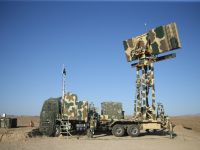A campaign by the United States to deny Sudan a seat on the Security Council paid off Tuesday, when Mauritius was elected by the UN General Assembly to represent Africa for two years.
Mauritius will replace Namibia, one of five elected members of the council whose two-year term ends on January 1, 2001.
Other new members are Colombia and Singapore, both elected unopposed, Ireland, an easy first-ballot win, and Norway, which squeaked in with the precise number of votes needed on the fourth round.
They will replace Argentina, Malaysia, Canada and The Netherlands respectively.
The United States expressed satisfaction at the outcome of the voting.
"We felt that Sudan was uniquely unqualified for the seat and that Mauritius, on the other hand, would be an excellent representative for Africa, and we look forward to working with them on the council," State Department spokesman Richard Boucher said.
Among the principal organs of the United Nations, the Security Council carries the most prestige.
Under the UN Charter it has "primary responsibility for the maintenance of international peace and security", a role which has gained in importance since the end of the Cold War.
The 10 elected members, half of which are replaced every year, share the responsibility with five permanent members -- Britain, China, France, Russia and the United States.
The non-permanent seats represent five regional blocs: Africa, Asia, Eastern Europe, Latin America and the Western Europe and Others Group (WEOG).
Before the first round of voting, General Assembly President Harri Holkeri, the former prime minister of Finland, said the African group supported Sudan, but Mauritius insisted on submitting its candidacy.
Last month, however, the Ugandan ambassador to the United Nations, Semakula Kiwanuka, wrote to the president of the Security Council denying that there was an African consensus.
He quoted Ugandan President Yoweri Museveni as saying Sudan should not be elected while it was still under UN sanctions imposed on it in 1996 after an attempt on the life of Egyptian President Hosni Mubarak.
Sudan was ordered to extradite three people suspected of trying to kill Mubarak as he arrived in the Ethiopian capital, Addis Ababa, for a summit of the Organisation of African Unity on June 26, 1995.
The sanctions included a ban on flights by Sudan Airways and restrictions on the movement of Sudanese diplomats abroad.
Various groups at the UN, including the African, Arab and Non-Aligned countries have been arguing since June in favour of removing the sanctions, but so far to no avail.
In his letter, Kiwanuka echoed US concerns about Sudan, saying it was a terrorist nation, "either directly or by proxy".
In Washington, Boucher indicated that the United States had been exerting significant pressure to defeat Sudan.
"We worked very hard on it," Boucher told reporters, describing anti-Sudan lobbying efforts by Secretary of State Madeleine Albright, UN ambassador Richard Holbrooke and other officials.
"We have worked this intensively, diplomatically, both at the secretary's level and through our mission in New York," Boucher said.
Even if a candidate for a Security Council seat has the unopposed support of its regional group, the choice must be approved by the General Assembly.
Colombia and Singapore received 168 votes among 173 countries voting on the first round.
Ireland got 130 votes, 14 more than necessary for election.
Mauritius received 113 votes on the fourth round, one more than two-thirds of those which took part in the ballot for the African seat.
Norway received 115 votes, the exact two-thirds majority of those voting for the second WEOG seat and was declared elected to gasps from the Assembly -- UNITED NATIONS (AFP)
© 2000 Al Bawaba (www.albawaba.com)







